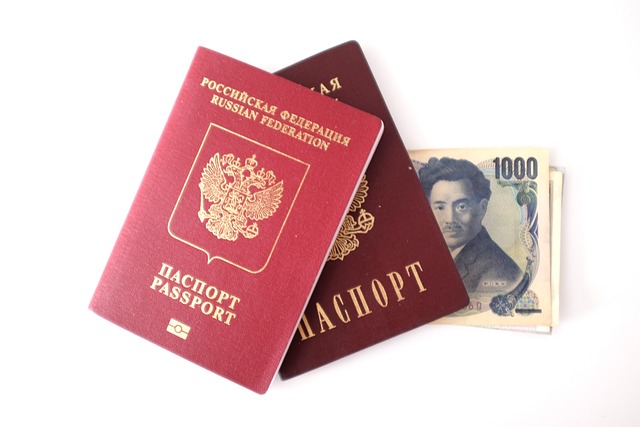Residency Permits vs. Permanent Residence: Key Differences

When considering a move to another country, understanding the distinctions between temporary residency permits and permanent residence is essential. These two types of legal statuses grant different rights, obligations, and pathways for individuals living abroad. Below, we’ll break down the key differences between residency permits and permanent residence to help you navigate your options.
1. Definition and Purpose
Residency Permit (Temporary Residence):
- A residency permit, also known as a temporary residence permit, allows foreign nationals to live, work, or study in a country for a limited period.
- It is typically issued for specific purposes, such as employment, education, family reunification, or investment.
- The duration of a residency permit varies by country but is usually valid for 1 to 5 years and can often be renewed.
Permanent Residence:
- Permanent residence grants an individual the right to reside indefinitely in a country without the need for renewal.
- While it does not confer citizenship, permanent residents enjoy many of the same rights as citizens, including access to social services, healthcare, and the ability to work or start a business.
- Permanent residence is often seen as a stepping stone toward naturalization (citizenship).
2. Duration and Renewal
Residency Permit:
- Temporary in nature, requiring periodic renewal.
- Renewal conditions vary depending on the type of permit and the host country’s regulations. For example, some permits require proof of ongoing employment, enrollment in educational programs, or sufficient financial resources.
- Failure to meet renewal requirements may result in the loss of residency status.
Permanent Residence:
- Valid indefinitely, provided certain conditions are met (e.g., maintaining a primary residence in the country or not being absent for extended periods).
- Does not require renewal but may be revoked if the holder violates immigration laws or fails to comply with residency requirements.
3. Rights and Privileges
Residency Permit:
- Grants limited rights based on the purpose of the permit. For instance:
- Work permits allow employment but may restrict job changes.
- Student visas permit study but often prohibit full-time work.
- Access to public services (e.g., healthcare, education) may depend on the type of permit and local regulations.
- Travel flexibility may be restricted; holders may need to apply for additional visas to visit other countries.
Permanent Residence:
- Offers broader rights, including unrestricted access to the labor market, education, and social benefits.
- Allows freedom to travel within the Schengen Area (in EU countries) without needing additional visas.
- Provides stability, as permanent residents are less likely to face deportation unless they commit serious offenses.
4. Pathways to Citizenship
Residency Permit:
- Holding a temporary residency permit does not automatically lead to citizenship.
- In most cases, applicants must first transition to permanent residence before becoming eligible for naturalization.
- Some countries offer accelerated pathways to citizenship for investors or highly skilled professionals.
Permanent Residence:
- Serves as a prerequisite for applying for citizenship in many countries.
- After residing as a permanent resident for a specified number of years (often 3–10 years, depending on the country), individuals may qualify for naturalization.
- Citizenship applications typically involve language tests, knowledge of the country’s history and culture, and proof of integration into society.
5. Eligibility Requirements
Residency Permit:
- Eligibility depends on the purpose of the permit. Common categories include:
- Employment-based permits (job offers or specialized skills).
- Study permits (admission to an accredited institution).
- Family reunification (spouse, children, or dependent relatives of residents/citizens).
- Investment-based permits (e.g., Greece’s Golden Visa program).
- Applicants must demonstrate financial stability, health insurance coverage, and sometimes proficiency in the local language.
Permanent Residence:
- Typically requires several years of continuous legal residency under a temporary permit.
- May involve additional criteria, such as passing a language test, proving financial independence, or showing contributions to the community.
- Certain countries offer direct routes to permanent residence for retirees, investors, or individuals with exceptional talents.
6. Mobility and Restrictions
Residency Permit:
- Often tied to specific activities (e.g., working for a particular employer or studying at a designated school).
- Leaving the country for prolonged periods or changing circumstances (e.g., losing a job) may jeopardize the permit’s validity.
- Traveling outside the host country may require re-entry permits or supplementary documentation.
Permanent Residence:
- Offers greater mobility within the host country and fewer restrictions on travel abroad.
- Absences longer than a specified timeframe (e.g., 6 months per year) may affect permanent residence status.
- Residents retain their rights even if they change jobs, retire, or pursue new ventures.
7. Tax Implications
Residency Permit:
- Tax obligations depend on the type of permit and how long the individual resides in the country.
- Some permits may exempt holders from paying taxes on worldwide income during the initial years of residency.
Permanent Residence:
- Permanent residents are generally considered tax residents and must declare their global income to the host country’s tax authorities.
- They may benefit from double taxation treaties if they maintain ties to another country.
8. Examples in Practice
Greece:
- Residency Permit: Through programs like the Golden Visa, non-EU citizens can obtain a renewable residency permit by investing €250,000 in real estate.
- Permanent Residence: After legally residing in Greece for 7 consecutive years, individuals may apply for permanent residence, which provides indefinite stay and access to citizenship after an additional 2 years.
Canada:
- Residency Permit: Issued through Express Entry, Provincial Nominee Programs, or family sponsorship, allowing temporary stays for work or study.
- Permanent Residence: Achieved through fulfilling residency obligations (e.g., living in Canada for at least 2 out of 5 years). Permanent residents can later apply for Canadian citizenship.
Germany:
- Residency Permit: Granted for purposes like employment, self-employment, or asylum. Blue Card holders (highly skilled workers) gain faster access to permanent residence.
- Permanent Residence: Available after 5 years of lawful residence, provided language and integration requirements are met.



